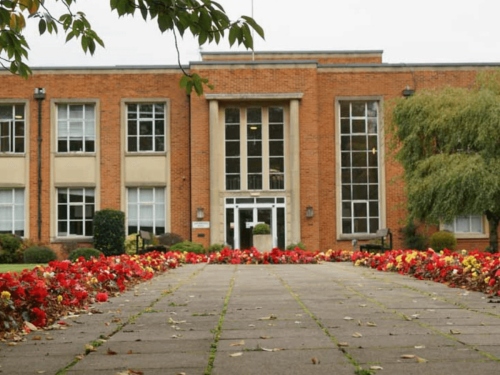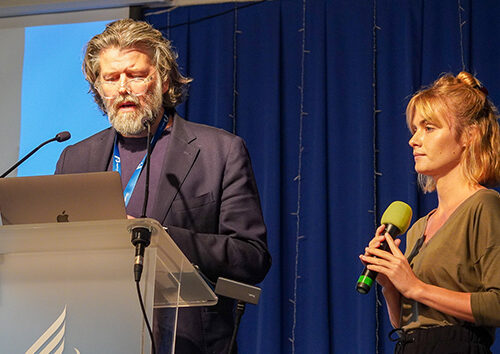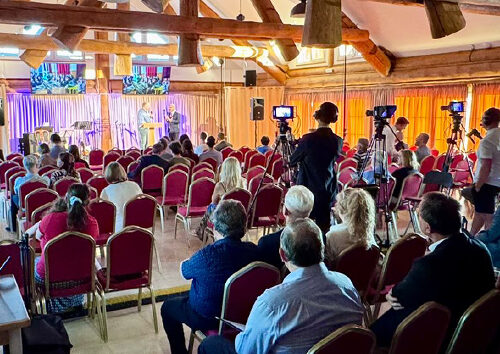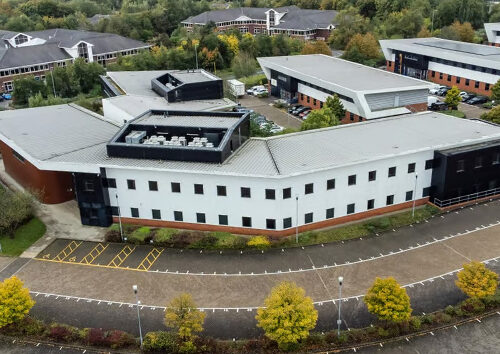15 July 2021 | Binfield, UK [Newbold College]
Following the statement from Newbold College of Higher Education on the need to renew focus on ministry and mission, the following ‘Q&A’ section aims to clarify what the reorientation of the College entails.
We have heard that finances are the main reason for the downsizing of Newbold College. Is that correct?
Over many years Governors have debated the optimum way ahead for the future of the College, bearing in mind its original purpose and the fact that fields right across the Trans-European Division have been subsidising its operations heavily. Given changes in the landscape of twenty-first century pastoral ministry and spiritual leadership, there has also been a need to reorient the College’s focus moving forward, with greater emphasis being placed on pastoral and spiritual leadership training. As a result, the College has been asked to restructure its academic offerings in order to offer more in the area of Pastoral Studies than was previously the case and to reduce its offering in other areas. The challenges brought about by COVID-19, the current financial climate and a reduction in student numbers have all served as a catalyst to reducing costs and restructuring the College’s academic offerings. There has consequently been a significant downsizing in the College’s academic provision, with the English Language Centre closing in December 2020 and the Department of Business and Humanities closing just last month. Both these curriculum areas were heavily subsidised and were bringing relatively little income into the College.
Is it true that Newbold is planning to reduce its total number of full-time employees?
In the light of the mandate by the Board of Governors to restructure and thus reduce Newbold’s offerings, managerially and in liaison with the Chair of Governors the College is working towards reducing the total number of full-time employees, bearing in mind the institution’s academic, administrative and business needs. Indeed, by the end of June some 20 colleagues will have already left Newbold employment, either via resignation, retirement or voluntary redundancy.
Why is Newbold planning to sell off a lot of its land and buildings?
There are no plans to sell off any of the land or buildings, and Governors and owners are exploring ways of using the various facilities in order to generate additional streams of income.
So what parts of the campus will be used by the College itself?
For the immediate future, all classrooms and offices will be in Salisbury Hall, and work is ongoing to ensure that this building is refurbished accordingly. The Library will not change. Schuil House will be the College’s hall of residence, and of course the Sports Hall-Auditorium will be an integral part of the campus.
But we hear that Moor Close will be sold – is that not true, then?
As stated above, there are no plans to sell any properties or land. That includes Moor Close – indeed, we are exploring ways in which that iconic building can serve the Church even better than at present, at the same time as bringing additional funds to the campus.
Can you explain what the rationale is for restructuring the Centre for Ministry and Mission (CMM)?
The College is restructuring and reorienting CMM for a range of reasons. First, to reflect the direction of the Board of Governors as voted on 30 September 2020 – namely, to shift the focus of the College’s academic provision and give additional emphasis to pastoral education while continuing to ensure and maintain the academic rigour for which Newbold is renowned globally. The College is going through this period of reorientation in order to achieve balance and to strengthen for the future. A second driver was the reduction of student numbers over recent years and a need to make cost savings in what is a difficult financial climate. Related to the reduction of student numbers, there was a clear reticence of a number of fields throughout the TED area to send students to Newbold. The College therefore needs to take steps to make its pastoral training offerings more current and more relevant in order to meet the demands of 21st-century Europe, and thus to attract greater student numbers in the future.
Who has been involved in setting out the rationale and the changes to the various curricula?
The ten core commitments and recommendations, and subsequent curriculum revisions, were drafted with the input and agreement of 49 people from around the globe with expertise in pastoral field work and academia, many of whom have attended and/or worked at Newbold. They have also been agreed by the Presidents of the fourteen fields within the Trans-European Division, as well as being voted by the Board of Governors. The new curricula have been voted by the TED’s Ministerial Training Advisory Committee (MinTAC). Together, Governors, owners and senior leaders at the College are collaborating to deliver the mandate from the Board of Governors.
If the Centre for Ministry and Mission is the sole focus and strategic direction for Newbold, can you clarify why only 8 full-time teaching positions will be available?
As explained above, Newbold is required by Governors to restructure its academic offerings in order to offer more balance and depth in the area of Pastoral Studies than was previously the case and to reduce its provision in other areas. This means employing experts in Pastoral Studies, rather than those with competence in that area. However, in the light of reduced student numbers and in the present difficult financial climate, the Board of Governors has determined that it is not possible to increase staff headcount within CMM.
Why can’t current staff cover the Pastoral Studies classes?
Newbold used to have three lecturers in Pastoral Studies, yet currently there is not even one who is fully dedicated to this area – one of those lecturing in Pastoral Studies also teaches in New Testament Studies, while another also teaches in Old Testament Studies. Therefore, there is also a recommendation that there be a Director of Placement and Spiritual Formation and that continual training be given to local church pastors under whom the placement takes place (in the vicinity of Newbold, as well as throughout the various Unions). Steps will be taken to ensure that there is more intentional continuity between Placement, Internship and Continuing Education/Continuing Professional Development. This will require a new level of collaboration and interaction between Newbold (Placement), the employing Conferences (Internship) and the Unions (CPD), with each holding specific responsibilities.
The additional Pastoral Studies modules in the revised curricula are materially different from any pre-existing roles within CMM and will require a doctoral qualification. It is usual in higher education for lecturers to hold an academic qualification higher than the level at which they are teaching. We will, of course, continue to encourage cross-fertilisation of teaching, noting that current colleagues will continue to teach a number of classes in the Pastoral Studies area, but we also consider it reasonable to require areas of expertise and not just areas of competence – especially given the thrust of some of these new modules.
If the Director of the Ellen G White Research Centre is to be a new position, why would that person not teach in the area of Pastoral Studies?
This position has been in place for a number of decades, with the role currently held by Dr Radiša Antić, who is planning to retire in September 2021. This vacancy will be filled through a separate appointment process through the Ellen G. White Estate in association with the Trans-European Division and with input as appropriate from Newbold. The holder of this post has typically been expected to have an earned doctorate in Adventist Studies or Adventist History, and the role does not include the teaching of Pastoral Studies.
Some of the blogs and threads we have read give the impression that Newbold is abandoning its reputation for academic rigour and is just becoming a ‘Bible School’. Is that correct?
The desired outcome of this reorientation is for Newbold to become recognised throughout the TED as a centre of excellence and innovation in ministry and mission by way of insightful analysis of church-growth trends and societal shifts; of applying deep scriptural insights to ministry; of imaginative and effective evangelistic and pastoral training; of being a nexus for thinking about all aspects of mission; and of being a source of ethical and effective leadership, and of committed front-line church planters, pastors, evangelists, theologians and leaders.
There is a need for front-line church planters, pastors, evangelists, theologians and leaders’ training to develop diverse competencies from multiple stations (Newbold, strategic diverse placements, well-structured internship) mentored by experienced and inspirational lecturers and pastors, together with effective continuing education. Some competencies cannot be taught in the field, only at Newbold, and vice-versa. Working out which is which will help the College and the fields to their mutual benefit. The principles of this model of comprehensive training are fairly clear but it will take an intentional effort and cooperation to make this a reality.
Furthermore, we are keeping the name ‘Newbold College of Higher Education’ and maintaining our partnership with and our validation arrangements through the University of Wales Trinity Saint David for all our offerings (BA Hons degree; Graduate Diploma; MA degree; and Postgraduate Certificate in Ministry). This demonstrates that we have solid academic qualifications in mind and that Newbold is not being reduced to becoming a Bible College or to offering only three-month evangelism courses as pastoral training. The academic rigour required in the UK for the conferring of degrees is a matter of public fact.
But we still hear that Newbold will no longer engage in “critical thinking” in the classroom – why is that?
This is a misconception of what the reorientation process entails. Critical thinking skills are absolutely essential for effective ministry in the context of 21st-century multicultural Europe – a very different scenario from the 19th-century American cradle of Adventism, or from 1st-century Palestine where Christianity began and where its early ministry was carried out.
Theological depth and analytical/critical thinking are already strengths of the College. This is not a question of ‘either/or’ – Newbold will produce front-line church planters, pastors, evangelists, theologians and leaders who have the capacity for critical thinking and who exhibit excellent practical skills. At the same time, we need lecturers to convey Adventist convictions in the classroom, and not just to be neutral presenters.
Therefore, we are not moving from what some call “theory” to “practice”. We recognise and affirm that there is nothing so practical as a good theory. Without an in-depth theoretical understanding of contemporary ministry, we run the real risk of rewarding busy work that is based on the vague notion that it might work – and of being clueless when it does not. Thus Pastoral Studies offered as a discipline at Newbold needs to be as rigorous as any other discipline. If we create such graduates in an academic setting, they will be balanced and practical in the field. It is important that we maintain an equal balance between an academic environment and creating a passion for making disciples who in turn can make disciples – and this is one of the main reasons for the reorientation of Newbold College of Higher Education.
This document was first published on the Newbold College of Higher Education website.
tedNEWS Staff: Victor Hulbert, editor; Deana Stojković, associate editor
119 St Peter’s Street, St Albans, Herts, AL1 3EY, England
E-mail: [email protected]
Website: www.ted.adventist.org
tedNEWS is an information bulletin issued by the communication department of the Seventh-day Adventist Church in the Trans-European Division. Readers are free to republish or share this article with appropriate credit including an active hyperlink to the original article.



